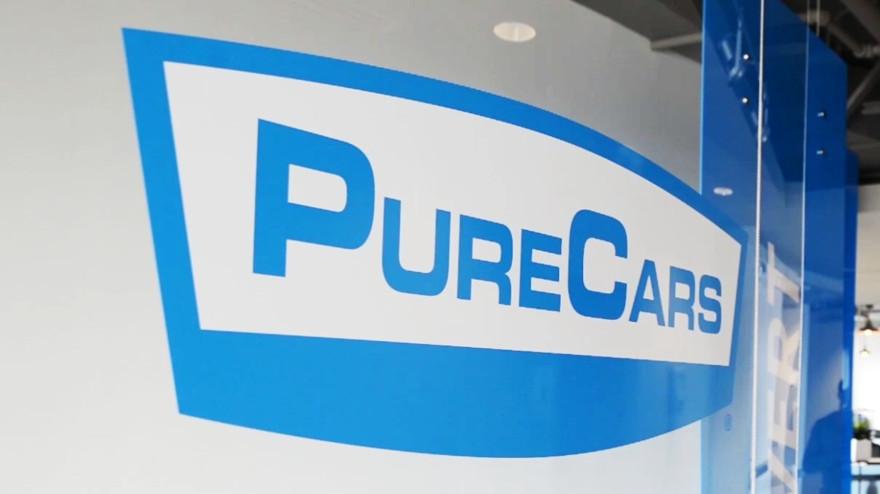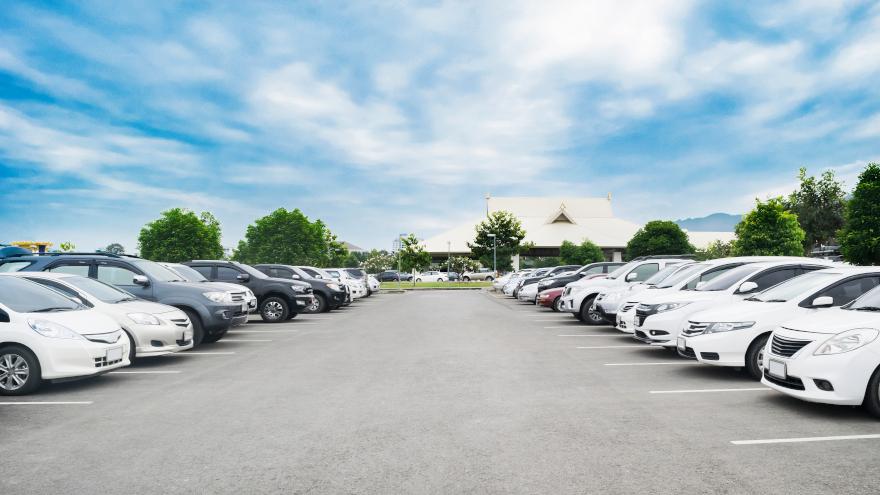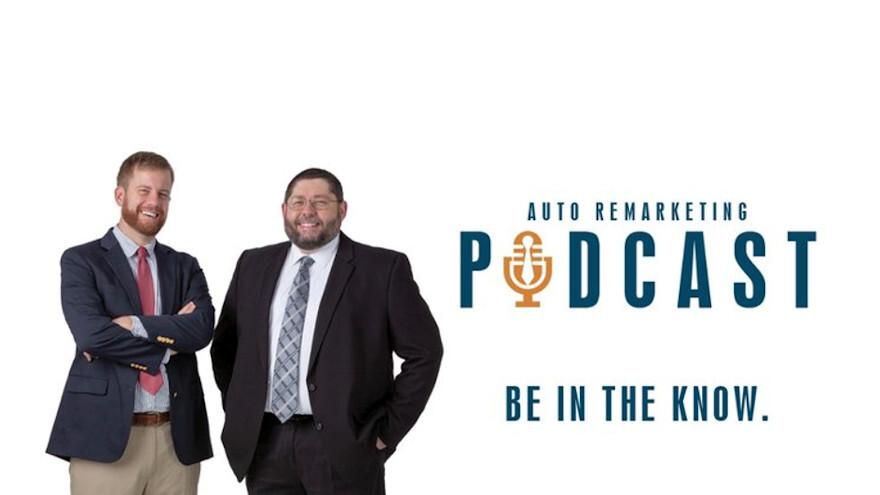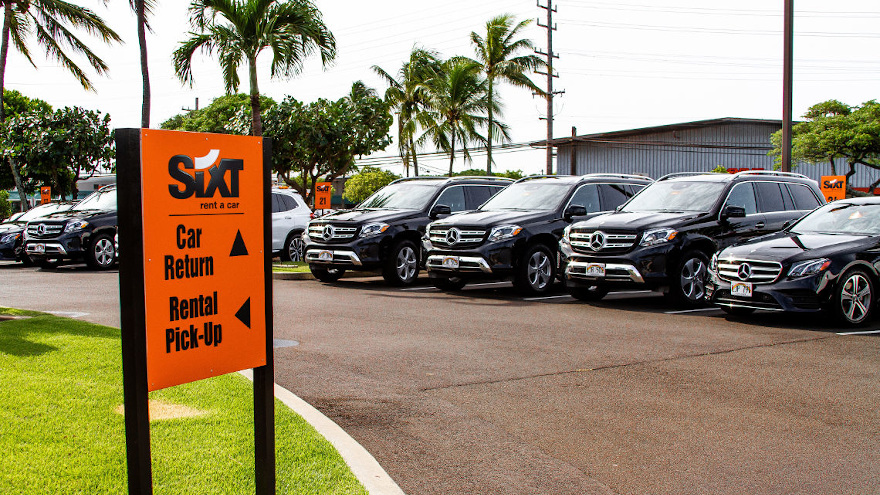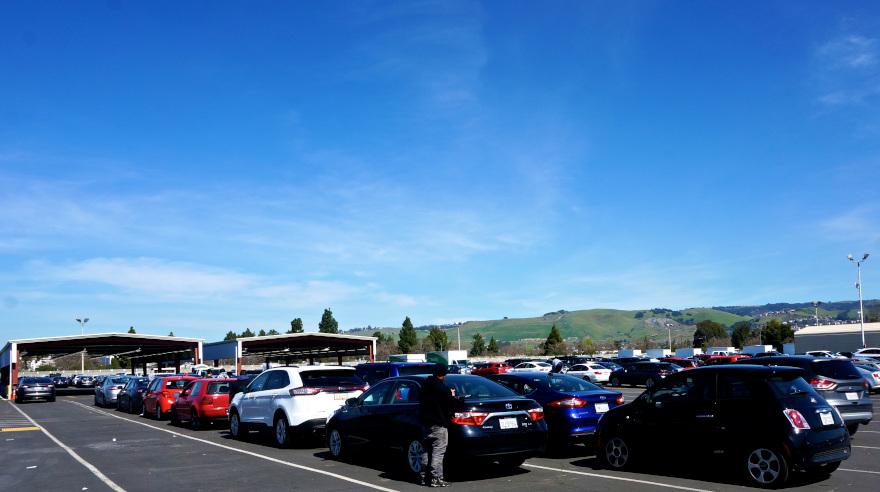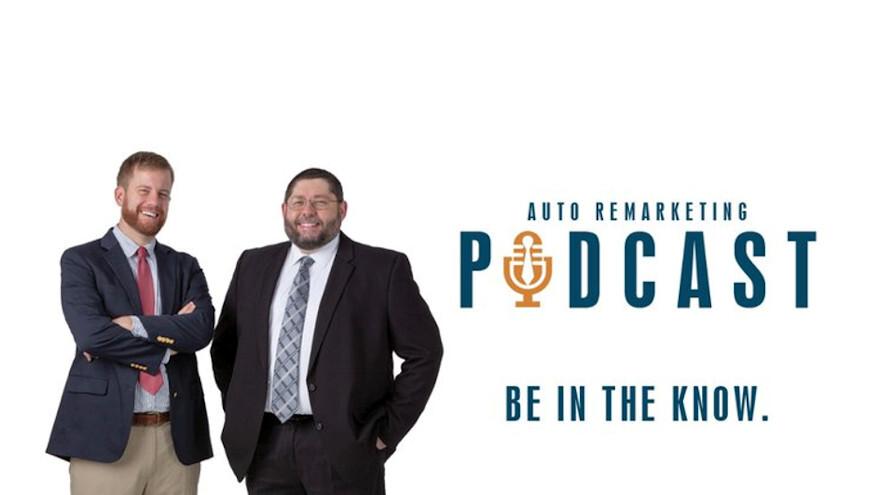The week ending July 5 marked the fifth straight that there were at least 100,000 auction sales of vehicles up to 8 years old, according to the latest Used Market Update from J.D. Power.
Specifically, the company estimated the weekly auction sales total at 100,000 units, which is down from 110,000 the week before.
However, J.D. Power anticipates auction volume will climb this week (ending July 12) and said the prior dip was driven by the leadup to the Independence Day Weekend.
The analysis also indicated that the 100,000 auction sales the week ending July 5 were a 17% hike over pre-pandemic projections.
On the retail side, sales volumes also remained strong.
Franchised dealers had used-car sales that were 18% stronger than pre-virus forecasts for the week.
“The strong demand for used vehicles is consistent with prior periods of challenging economic conditions,” J.D. Power said in the update. “Additionally, reduced incentives on new vehicles drove up monthly payments, which further bolstered demand for the affordability of used vehicles.”
This marked the third consecutive week of 18% growth in franchised dealer used-car sales versus pre-pandemic forecasts, following 22% growth the week ending June 14.
Separately, a Cox Automotive analysis released Friday on the company's 13-month rolling used-car SAAR found that June showed a 12% year-over-year decline in total used-vehicle sales (which includes franchised and independent dealers, along with non-dealer sales).
The seasonally adjusted annualized sales rate for total used-car sales last month was an estimated 36.0 million, Cox said.
In June 2019, it was 39.8 million. In May of this year, it was 32 million.
In what Cox determines to be retail transactions (those sold by franchised or independent dealers) there was a used-car SAAR of 18.9 million last month, compared to 21.0 million in June 2019.
The used-car retail SAAR for May was 16.7 million.
A graph included in the Cox analysis shows that both total and retail used-car SAAR levels have been on the mend sequentially since bottoming out in April.
Auctions are pushing more vehicles through the wholesale system. Dealerships are seeing increases in retail-vehicle sales. Finance companies are building their portfolios, too.
Might seem like a pandemic isn’t even impacting daily life, right?
While the automotive industry has been a bright spot in recent weeks, an array of business owners, economic experts and policymakers are striking a cautionary tone as the U.S. and other parts of the world try to rebound from job losses and diminished revenues because of COVID-19. Federal Reserve chair Jerome Powell looked to set the scene when he appeared at a hearing hosted by the U.S. House Financial Services Committee just before Fourth of July.
“As the economy reopens, incoming data are beginning to reflect a resumption of economic activity: Many businesses are opening their doors, hiring is picking up, and spending is increasing. Employment moved higher, and consumer spending rebounded strongly in May. We have entered an important new phase and have done so sooner than expected. While this bounce back in economic activity is welcome, it also presents new challenges — notably, the need to keep the virus in check,” Powell told lawmakers.
“While recent economic data offer some positive signs, we are keeping in mind that more than 20 million Americans have lost their jobs, and that the pain has not been evenly spread,” Powell continued. “The rise in joblessness has been especially severe for lower-wage workers, for women, and for African Americans and Hispanics. This reversal of economic fortune has caused a level of pain that is hard to capture in words as lives are upended amid great uncertainty about the future.
“Output and employment remain far below their pre-pandemic levels,” Powell went on to say. “The path forward for the economy is extraordinarily uncertain and will depend in large part on our success in containing the virus. A full recovery is unlikely until people are confident that it is safe to reengage in a broad range of activities.”
Kronos, a provider of workforce management and human capital management cloud solutions, provided some updated data this week associated with some of the trends Powell referenced.
Kronos reported that in alignment with the national Fourth of July holiday observance, total volume of shifts worked decreased by 11.4% from June 29 through July 5, mirroring — and, in fact, falling short of — the decline in shifts that occurred the week of July 4 of last year (down 26.9%).
According to the latest U.S. Workforce Activity Report from Kronos, prior to the July 4 holiday, U.S. businesses had grown shifts by 32% since shift work hit “the bottom” during the week ending April 12. Overall, shift volume remains down 24.3% since the week ending March 15 — the last week of “normal” shift work activity before the U.S. declared a national emergency.
Despite the rebound from that “bottom” in terms of shifts worked, other Kronos data released this week showed how an economic rebound still is a work in progress, so to speak.
The firm indicated the delta between employee terminations — which includes both voluntary and involuntary turnover — and new employee hiring widened during the week ending July 5. Prior to COVID-19, Kronos said this ratio stood at nearly 1 termination for every 1 new hire; yet it currently stands at 2.8-to-1, the nation’s largest delta since the 3.2-1 ratio that occurred when employee shifts hit “the bottom” the week ending April 12.
“Over the past six weeks, we have seen the national economic outlook begin to temper: The upward trendline of shifts, peppered with holiday-related declines correlating with Memorial Day and July 4, has slowed; the delta between terminations and hirings continues to swell; and industries continue to recover shifts at varying paces based on state reopenings, restrictions on travelers and inconsistent consumer demand,” Kronos vice president Dave Gilbertson said in a news release that accompanied the latest data.
“While last week’s July 4-related shift decrease was not as large as expected based on historical data, we can’t yet come to any conclusions based on a single week — especially since the holiday fell on a weekend — which may impact vacation for a second week,” Gilbertson continued. “Data over the next several weeks should indicate whether the relative strength of recovery is enough to reverse slowing shift growth amid nationwide COVID-19 case spikes.”
Global view of potential rebound
Of course, pandemic-created economic problems are not limited to just the U.S. S&P Global Ratings offered a worldwide perspective in one of its newest reports.
S&P Global Ratings indicated the COVID-19-led recession will likely weigh on credit metrics well into 2023 from the combination of lost output and debt overhang, threatening corporate solvency. The shape of recovery will differ from previous crises, with a wide range of outcomes across industries and geographies, and accelerating some secular industry shifts, according to the firm report titled, “Global Credit Conditions: The Shape of Recovery: Uneven, Unequal, Uncharted.”
S&P Global Ratings acknowledged the pandemic will likely leave “profound” scars on the world economy. Amid a deeper hit than initially anticipated in emerging markets, analysts now forecast a full-year contraction in global GDP of 3.8%.
The firm went on to state the dire effect of extended lockdowns on employment and consumer confidence also means that recovery will take longer than expected, from 2021 through 2023.
“While we estimate the global economy will begin to rebound in the second half of the year, the risk that this won’t materialize, and that the drag on consumer demand and business activity will persist, is high,” said Alexandra Dimitrijevic, global head of research at S&P Global Ratings.
“At the same time, any premature pullback in fiscal and monetary stimulus would not only hurt consumers and small businesses, but could roil financial markets, which have taken a more optimistic tone than suggested by economic and credit fundamentals,” Dimitrijevic continued.
“On a positive note, the crisis could represent an opportunity for governments to support the recovery through infrastructure investment and support a green, digital and more sustainable economy,” Dimitrijevic went on to say. “Overall, the shape of recovery will be uneven, unequal, and uncharted — but one thing is certain: global debt will likely take another step up.”
View from small businesses
Many dealerships certainly could fall into the small-business category of the economy.
On Wednesday, the National Small Business Association (NSBA) released a new survey focused on how COVID-19 is impacting America’s small businesses and what they anticipate in the coming months ahead. The survey showed modest improvements in small-business confidence and economic outlook as well as a lower overall impact of the pandemic.
“Despite these gains in outlook, COVID-19 continues to wreak widespread economic hardship and insecurity among small businesses as a result of the near-constant changing status of the pandemic,” NSBA president and chief executive officer Todd McCracken said in a news release. “Business and job growth in this turbulent environment are virtually impossible for most small businesses.”
The survey results described a small-business community slightly better off today than it was two months ago, but a far fall from where it stood economically back in January.
While the majority of small businesses (69%) said they are very concerned about the coronavirus, that number is down from 85% registered two months ago. The survey also revealed that two-in-three small-businesses say they are still experiencing reduced customer demand, however that is down from 80% in April.
Not only is the pandemic resulting in massive drops in demand, but 82% of surveyed business owners have also made workspace changes costing $11,729 on average for the initial set-up with ongoing monthly costs averaging around $1,800.
Furthermore, just one-third of small businesses are very confident they will fully recover from the pandemic and economic downturn, according to the NSBA survey taken among 630 small-business owners June 16-23.
“Small-business owners are inherently optimistic and confident in their ability to run their business, however economic insecurity can become an insurmountable hurdle,” said NSBA chair Marc Amato of Walco Electric Co. in Providence, R.I. “Absent a clear path forward, we could see a notable reversal of the more positive small-business outlook we’re seeing now.”
In this episode of the Auto Remarketing Podcast, senior editor Joe Overby catches up with PureCars chief executive Jeremy Anspach.
They talk about automotive advertising during the pandemic, the various channels advertisers are using, manufacturing shutdowns, the turnaround in used cars and more.
To listen to the episode, click on the link available below, or visit the Auto Remarketing Podcast page.
Download and subscribe to the Auto Remarketing Podcast on iTunes or on Google Play.
The used-car market continues to be a bright spot for franchised dealers, particularly for two public dealer groups sharing operational updates this week.
Lithia Motors said Tuesday it generated around a 23% year-over-year spike in same-store used-vehicle unit sales during June, which was a record month in pre-owned for the retailer.
Same-store new-vehicle sales were down about 15%, while service/body/parts was recovering and dipped just 3%, approximately. (The latter reflected two more production days in June over the year-ago period).
Lithia also enjoyed close to a 53% spike in same-store web traffic in June.
“The notable improvements throughout all business lines are representative of our team's continuous commitment to providing consumers safe, convenient and affordable solutions wherever, whenever and however they desire,” Lithia president and chief executive officer Bryan DeBoer said in a news release.
“Lithia is primed for the second half of 2020 with the expansion of our proprietary ecommerce home channel and the further acceleration of our growth strategy,” DeBoer added.
Over at Asbury Automotive Group, the retailer shared some preliminary results for the second-quarter months.
Those indicate that same-store used-vehicle unit sales were up an estimated 1% in June, following 38% and 7% declines in April and May, respectively (again, based on preliminary results).
Same-store used margins for June are estimated at 8.9%, up from 5.6% in April and 7.0% in May.
On the new-car side, it is estimated that Asbury's same-store unit sales were down 16% in June, an improvement from the 34% and 20% declines in April and May, respectively.
Same-store new margins were estimated at 5.7%, for June, compared to 4.8% in April and 4.5% in May.
In this episode of the Auto Remarketing Podcast, Cherokee Media Group president Bill Zadeits chats with Copart vice president and head of marketing Michelle Hoffman and Yoker Vidal, who is the senior director for Copart's non-insurance division.
They discuss how being online for 17 years helped the company once COVID-19 hit and how Copart has reached new clients in the remarketing space, even before the pandemic.
Plus, the Copart executives share what they're hearing from dealer customers in today's market.
To listen to the episode, click on the link available below, or visit the Auto Remarketing Podcast page.
Download and subscribe to the Auto Remarketing Podcast on iTunes or on Google Play.
Auction Academy is carrying on with its training program, but participants will be relegated to computer screens for the remainder of the year.
Auction Academy president Penny Wanna announced on Monday that its current Class 6 Group will gather via a virtual classroom. Furthermore, the group’s previously scheduled quarterly meetings for 2020 are being replaced by monthly virtual sessions, which started on June 22.
Auction Academy also said in-person and on-site training and education sessions will resume in February.
“Due to the COVID19 Pandemic and its many effects on our daily lives, Auction Academy has made the difficult decision to not host any in-person sessions for the rest of 2020,” said Wanna, who notes that the change comes half-way through the class group’s original two-year course syllabus. “The remaining four sessions will be scheduled on a quarterly basis in 2021.”
Wanna reported that although students and staff will not meet in its traditional in-person format, Auction Academy is taking measures to continue the class group’s momentum, stay connected and provide the current students with a learning environment. A virtual schedule will include monthly interactive video sessions through the end of the year, which will alternate between a leadership focus and an industry topic.
“While we were all initially disappointed to cancel the in-person sessions, we have great expectations that the restructured virtual program will help fill the void and continue the all-important progress Class 6 has made in its training process,” Wanna said.
“At Auction Academy, we feel incredibly positive about our ability as a group and as an industry to be flexible, to adapt without pause and to rise to the challenge of showing our resilience,” she continued. “We have an excellent curriculum lined up through the second half of 2020, and will continue with quarterly in-person training next year, culminating in Class 6 Group’s rescheduled graduation in September of 2021 during the NAAA Convention in Chicago.
Auction Academy’s first virtual session convened on June 22, providing an opportunity for students and staff to reconnect as a group and to discuss in depth the details of the program going forward.
Monthly sessions beginning this month will lead off with a presentation by David Walsh of JM Family Enterprises, who will discuss leading during a pandemic. Successive months’ topics will include OSHA training, online sales processes and professional leadership training.
“Navigating life during the COVID-19 Pandemic is challenging on many fronts, and we are all working to persevere both personally and professionally,” Wanna said. “At Auction Academy we are privileged to work with some of the best and brightest presenters in the industry, and we are looking forward to continuing our association with them by means of a restructured virtual format until we can resume the regular curriculum in 2021.”
Auction Academy is a continuing education program developed by TPC Management Co. (TPC) for professionals in the auction industry. Auction Academy has developed two distinct curriculums, the first being the original two-year program which provides a training and development experience for auto auction professionals, structured like an Executive MBA program. The second curriculum is the newer Seminar Series, one-day intensive sessions focused on a specific topic or functional area.
With faculty drawn from expert practitioners around the country, Auction Academy’s programs are designed to enhance essential skill sets, promote best practices and yield better auction performance. The curriculum includes site visits, field trips and work with industry experts in all areas of auction operations.
For additional information about Auction Academy, contact Wanna by telephone at (615) 591-4544 or by email [email protected], or visit the website www.auctionacademy.net.
The Advantage Rent a Car bankruptcy gave SIXT a chance to enhance its U.S. footprint for renting its premium fleet of vehicles.
According to a news release distributed just before the holiday weekend, a Delaware bankruptcy court approved SIXT taking over 10 airport branches in the United States from Advantage Rent a Car. Starting most likely in mid-July, SIXT said it will receive the airport concessions at the strategically important locations at Boston (BOS), New York (JFK and LGA), New Jersey (EWR) and Houston (IAH).
SIXT also said it will also be renting its premium fleet in Orlando, Fla. (MCO), Denver (DEN), Maui, Hawaii (OGG), Honolulu (HNL) and Las Vegas (LAS) directly in the airport terminal.
“SIXT thus offers its private and business customers an even better network and shorter distances for a comfortable journey,” the company said.
The company went on to note the expanded branch network in the U.S. rounds off SIXT’s offering for business and private customers and creates a basis for new growth potential.
SIXT is thus continuing to tap into one of the most lucrative markets in the rental segment. With a huge market volume of more than $36 billion, SIXT pointed out the United States is currently by far the largest growth market for the mobility provider.
The company indicated the acquisition of the new branches alone holds great potential, as the volume of the 10 airports in total is estimated at around $3.4 billion. This figure roughly equals the total potential of the rental car business in Germany, according to the SIXT.
SIXT went on to mention the current circumstances caused by the coronavirus crisis and the insolvency of the car rental company Advantage offered SIXT a unique opportunity to acquire the 10 highly coveted airport concessions at an attractive price.
Through this investment, SIXT managing board member Alexander Sixt highlighted that the company is gaining access to travelers in airports who otherwise would have been difficult to reach for years or even decades.
“With this highly pragmatic transaction, we have taken a very decisive strategic step towards building a nationwide network in the world’s largest car rental market,” Sixt said. “The acquisition of the concessions for all New York airports as well as for Boston, Orlando and Las Vegas, among others, lays the foundation for substantial growth after the crisis.”
Twelve additional Manheim auctions will begin piloting the return of in-lane bidding this week, following the company’s initial pilot run at five locations.
Dealers at the pilot locations are able to bid in-lane through Digital Block sales, which include in-lane bidding on site at Manheim auctions with a live auctioneer and simulcast.
Vehicles remain stationary and can be viewed on screens. They do not move through lanes.
The dozen auctions scheduled to resume in-lane this week are:
Manheim Utah
Manheim San Antonio
Manheim Denver
Manheim Nevada
Manheim Cincinnati
Manheim Cleveland
Manheim New Orleans
Manheim Lafayette
Manheim Albany
Manheim Poplar Bluff
Manheim Little Rock
Rome Auto Auction in Georgia. (This is a digital sale that Manheim staff operate using Manheim technology)
This second batch of in-lane pilots was slated to start Monday. Manheim may add more locations for in-lane bidding by the middle of this month.
The first group of auctions to pilot the return of in-lane bidding in late June were Manheim Dallas, Manheim Kansas City, Manheim Dallas-Fort Worth, Manheim Darlington and Manheim Tulsa.
“As we continue to move forward with our re-opening plans, we saw great success with our return to in-lane bidding at our five initial pilot sites,” Manheim division vice president Alan Lang said in an emailed statement.
“After two weeks of safety reviews, we are now ready to expand to 12 additional locations. For all pilot sites, we established strict safety protocols, including requiring facial coverings, social distancing and a daily review of pandemic data in each market,” Lang said.
“We are being intentional with our decision to expand the program, as health and safety remain at the center of everything we do,” he said. “Should the data continue to support a safe environment for team members and clients, we anticipate moving forward with a larger group of locations by mid-July.”
In an update letter shared June 9, Manheim president Grace Huang said of then-upcoming pilot: “This change will require strict protocols, including redesigned auction blocks with Plexiglas guards, new distancing requirements and enhanced safety measures. Should social distancing violations occur, or we experience a rise in COVID-19 hot spots, this pilot program will be suspended.”
Manheim had gone simulcast-only starting in March. It began allowing inventory previews on May 1.
On June 8, sellers were allowed to return to rep vehicles. The week of June 22, the pilot return of in-lane bidders began at five locations:
With Monday’s move, 17 of Manheim’s auctions will now offer in-lane bidding through Digital Block. All of Manheim’s locations allow for inventory previews.
Manheim currently offers Lot Vision tracking technology at 14 auction locations, with Manheim Texas Hobby and Manheim Houston expected to be added this week and Manheim Nashville to be added at month’s end.
In an episode of the Auto Remarketing Podcast recorded in May and published in early June, Kenny Jones — who is senior director of health and safety at Manheim parent company Cox Automotive — discussed enterprise-wide health/safety efforts as well as insights on what would be considered in re-opening physical sales at Manheim auctions.
That episode can be found below.
My how the tables have turned!
This time, it is Joe and Nick who are interviewed on the Auto Remarketing Podcast.
In this "reporter's notebook"-style episode, former sports broadcaster and current PA announcer/conference emcee extraordinaire Bill Zadeits talks to the guys about the surreal first half of 2020 in used-car retail, wholesale auctions and auto finance.
To listen to the episode, click on the link available below, or visit the Auto Remarketing Podcast page.
Download and subscribe to the Auto Remarketing Podcast on iTunes or on Google Play.
In each of the four full weeks of June, used-car sales at franchised dealerships exceeded pre-virus forecasts by double-digit percentages, according to J.D. Power’s Used Vehicle Impact Report released Tuesday.
For the week ending Sunday (June 28), used sales for franchised dealers were 12% stronger than what pre-pandemic forecasts called for. This performance followed gains of 17% for the week ending June 21, 23% the week ending June 14 and 14% the week ending June 7.
“The strong demand for used vehicles is consistent with prior periods of challenging economic conditions,” J.D. Power said in its report. “Additionally, reduced incentives on new vehicles drove up monthly payments, which further bolstered demand for the affordability of used vehicles.”
In an analysis last week, TrueCar subsidiary ALG was projecting that June’s used-car sales, while still much softer than year-ago levels, would climb 16% month-over-month.
And conditions could improve further in pre-owned, with additional supply on the horizon, financing deals and attractive prices.
Plus, the initially heavier impact on used from COVID-19 compared to new may “reverse itself,” says ALG chief industry analyst Eric Lyman.
Overall, ALG was projecting 2,719,074 used-vehicle sales for June. That’s a 20% decline from June 2019 but a 16% uptick from May.
“While used-vehicle sales were initially hit harder than new vehicles due to COVID-19 impact, we expect that trend to reverse itself now due to new car inventory shortfalls.
“Used-vehicle inventory is always much larger than new and lease returns have been picking back up, adding a flood of 2- to 3-year-old vehicles back into the used market,” Lyman said.
“Additionally, there’s attractive financing and lower price points which are all helping spur increased demand in the used-vehicle market.”



